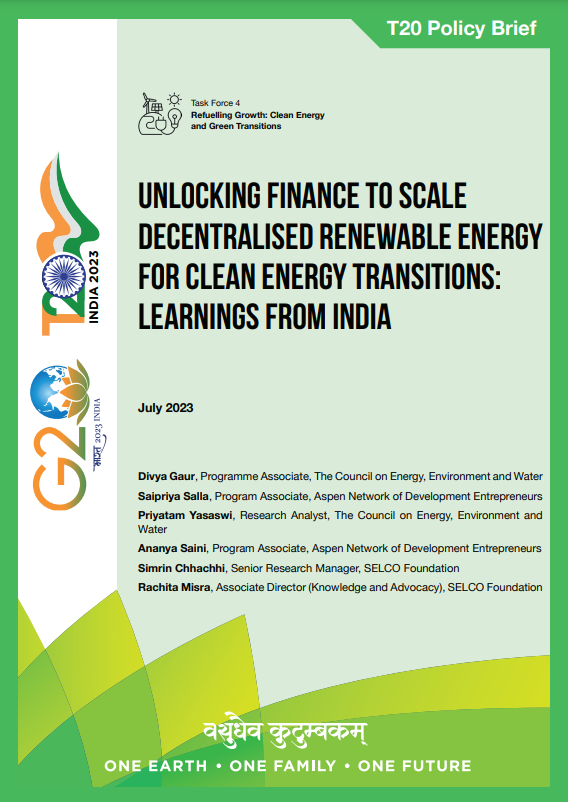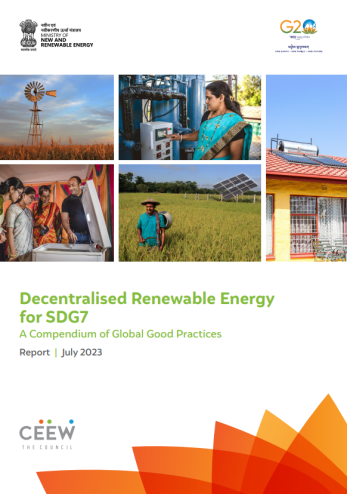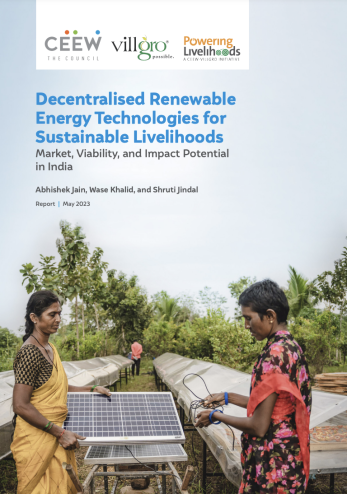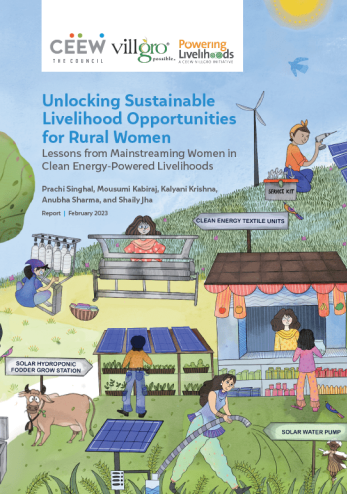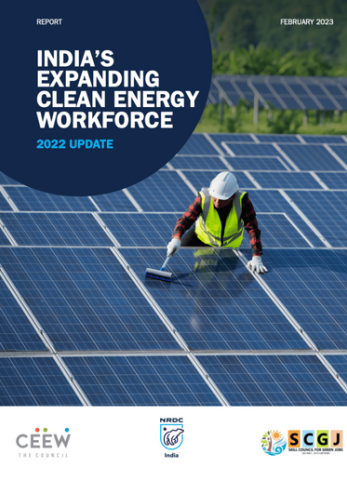Policy Brief
Unlocking Finance to Scale Decentralised Renewable Energy for Clean Energy Transitions
Learnings from India
Divya Gaur, Saipriya Salla, Priyatam Yasaswi, Ananya Saini, Simrin Chhachhi, Rachita Misra
July 2023 | Sustainable Livelihoods
Suggested citation: Gaur, Divya, Saipriya Salla, Priyatam Yasaswi, Ananya Saini, Simrin Chhachhi, Rachita Misra. 2023. Unlocking Finance to Scale Decentralised Renewable Energy for Clean Energy Transitions: Learnings from India. T20 Policy Brief.
Overview
Decentralised Renewable Energy (DRE) technologies enable an equitable energy transition and ensure energy security for many emerging and developing economies. Unlocking finance for users and enterprises is critical to mainstreaming these technologies for a just energy transition. This policy brief, published by the T20 Taskforce, outlines the challenges with financing currently faced by the ecosystem stakeholders. It builds upon the policy framework released by the Ministry of New and Renewable Energy (MNRE), Government of India, for scaling the adoption of DRE livelihood technologies in India. It explores how DRE can be mainstreamed in the energy transition conversation and scale the adoption of these technologies leveraging the G20 network and resources.
Key Highlights
- In many low-and middle-income economies, the livelihoods of millions of marginalised populations are strained due to a lack of access to reliable and affordable energy. According to the IEA, around 75 million people will likely lose access to electricity due to rising prices.
- Globally, G20 economies account for approximately 80 per cent of greenhouse gas emissions and 76 per cent of these come from the energy sector. Moreover, as per data from IEA, G20 countries produce 85 per cent of coal, 64 per cent of crude oil, and 65 per cent of fossil gas, highlighting the importance of prioritising clean energy transitions within G20 countries.
- DRE provides affordable and reliable energy access while supporting a variety of livelihoods. There is a potential USD 53 billion market for clean energy technologies in India and a USD 11 billion market across Africa. DRE can also help play a crucial role in job creation in developing economies, thereby driving economic growth.
- A significant obstacle in the widespread adoption of DRE-based livelihood solutions is their perception as capital-intensive. This, coupled with the gap in awareness owing to a need for more evidence on the impact on diverse stakeholders, makes enabling evidence-backed financial support for enterprises and end-users essential for large-scale deployment.
Recommendations
- Create a sub-group focussed on DRE for green growth under the Energy Transition Working Group (ETWG) to actively plan and support the scaling up of DRE technologies. The process should be geared towards providing initial energy access to support a clean energy transition and job creation.
- Encourage countries to provide financial support to projects that help scale up DRE technologies. Developed countries could offer affordable financial instruments to enterprises and end-users in high market-potential countries, leveraging the experience of countries like India, among others.
- Enable international cooperation across sectors for an equitable exchange of knowledge and resources essential for scaling DRE technologies.
- Get buy-ins from financiers, policymakers, and implementing organisations based on evidence from proposed innovative use case interventions.
"Enabling low-cost finance for users and manufacturers of clean energy technologies can help marginalised communities improve their lives, education and health worldwide. The Indian G20 presidency should endeavour for enhanced cooperation among other G20 countries to make this happen."




